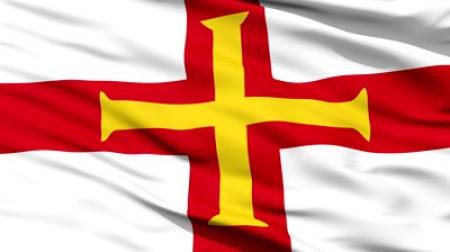
A Guernsey Protected Cell Company (PCC) was pioneered in Guernsey in 1997. Its original purpose was to provide a simpler way for their insurance companies to segregate their different type of policies (i.e. health, life, fire, auto, etc.) from each other and their policyholders. Each type of insurance policy has its own cell and every policyholder has his or her own separate cell within the type of insurance policy.
Other countries adopted their own versions of the PCC structure so other industries besides insurance could use them. This brought about the Guernsey Companies Law of 2008 establishing PCC’s for all industries with regulations on how they form, interact, and dissolve.
The most popular use for a PCC is as an umbrella for investment funds where each type of investment has its own cell along with each investor having his or her own cell. However, a PCC is not limited to just insurance and investments management. A PCC can be used for asset protection by separating assets into cells pertaining to type and location (i.e. Cyprus real estate separated into separate cells for Limassol apartments and a Nicosia commercial building).
The structure of a PCC consists of the main core company (PCC) and its separate “Protected Cells” (PC’s). The assets of the core PCC are kept separate from the assets of each PC. In the same manner, every PC has its own assets separated from the other PC’s and the core company PCC. This way if the core company or one of the PC’s owed unpaid debts to their creditors and are sued in a court of law, the other PC’s are protected. This is ideal for risky investments which are isolated in their separate cells not allowing for the exposure of their liabilities to be carried over to the other cells.
Foreigners can own all the shares in a PCC as there are no restrictions on foreign investors in PCC’s.
Guernsey Protected Cell Company (PCC) Benefits
A Guernsey Protected Cell Company (PCC) can take advantage of the following benefits:
• Total Foreign Ownership: Foreigners can own all of the corporate shares.
• No Taxation: There are no taxes to pay. Note: U.S. residents and anyone residing in countries taxing world income must disclose all income to their tax agencies.
• One Shareholder/One Director: Only one shareholder and one director is required who can be the sole shareholder.
• Privacy: The names of the shareholders and beneficial owners are not in any public records.
• Limiting Risks: The use of separate cells isolates risky investments from the assets of the core PCC and the other cells.
• No Minimum Share Capital: There is no requirement for a minimum share capital.
• No Audits: Required audits can be waived by the PCC.
• No Meetings: Required annual general meetings can be waived by the PCC.
• English: As a British Territory, Guernsey’s official language is English.

Guernsey Protected Cell Company (PCC) Name
The PCC must not choose a company name resembling other Guernsey companies or legal entities.
The company must end with either the words “Protected Cell Company” or initials “PCC”.
Special Characteristics
A PCC is a single legal entity like a corporation.
The PCC consists of the “core” which is the main corporate body and “cells” which are separate asset, but not a separate legal entity. This means that while cells are separated from the core company and the other cells they cannot enter contracts in their own name. Only the core can enter into contracts with third parties on behalf of each separate cell. As a result, the PCC must identify itself as a PCC and the contract is being entered into on behalf of an identifiable cell. This is very important as full disclosure regarding the legal capacity and role of the PCC and the specific cell is mandatory under the law.
A PCC’s assets and liabilities are segregated into separate cells with a ring surrounding every cell so creditors of one cell cannot take legal action against the other cells (or the core) to pay one cell’s debts.
Each cell can have its own shareholders, assets, and liabilities. The PCC can pay dividends to a cell’s shareholders only from the profits earned by the cell’s assets.
Incorporation
Application is made through the Guernsey Financial Services Commission (FSC).
The details regarding beneficial owners must be provided to the FSC, but will not be part of the public records. In addition, the names of the registered shareholders are disclosed to the FSC, but are not included in the public records. However, the names of the directors are part of the public records.
After approval, a cell is created by the PCC with the passage of a special resolution.
Shareholders
A minimum of one shareholder is required to form a PCC.
There are no restrictions on the citizenship or residency of the shareholders. Natural person and legal entities may become shareholders.
Directors
Only one director is required to form a PCC. Directors may be natural persons or legal entities.
The PCC only has one Board of Directors. Individual PC’s cannot have their own Board of Directors.
Directors must maintain the assets and liabilities of the cells separate and individually identified from the other cells’ assets and liabilities and from the core.

Share Capital
There is no minimum share capital requirements.
In addition, the law does not specify how share capital can be structured for a PCC. Normal corporate practices allows share capital to be divided into ordinary shares for the core and unclassified shares for each cell (can be redeemable) with no voting rights.
Registered Office
Every PCC must maintain a local registered office.
Registered Agent and Company Secretary
PCC’s must have a local registered agent.
A company secretary is not required, but if one is appointed it can be a natural person or a legal entity.
Annual Meetings
PCC’s are required to hold an annual general meetings unless the shareholders waive this requirement.
Taxes
A PCC is treated as a single taxpayer legal entity where Guernsey taxes are imposed on the total profits from the core and every cell combined.
Currently, the corporate tax rate is 0% for non-resident companies (like a PCC 100% owned by foreign shareholders).
Note: United States taxpayers and anyone taxed on global income must declare all income to their governments.
Annual Returns
An annual return combining the core with all the cells must be filed with the Registrar of Companies before the end of January every year.
A combined (core and all cells) tax return is required to be filed with the Tax Authorities. The tax return must be filed within one year and fifteen days from the end of the tax year.
Accounting
Every PCC must keep accounting records for the core and the cells. Accounting records must meet acceptable accounting standards.
Neither the accounting records nor financial statements are available to the public. The records can be kept anywhere. They must be kept for at least six years.
Financial statements are required combining the core and cells accounts for every financial year.
Audits
Audits are required, but PCC’s may obtain a waiver by passing a shareholders’ resolution of audit exemption. The resolution must be passed every year before the relevant financial year begins.
However, “large companies” cannot create this waiver. A large company is defined as meeting 2 of the following 3 conditions in the previous financial year and the prior one:
• Having an average number of 50 or more employees;
• Having an annual turnover of 6.5 million GBP;
• Having a net balance sheet of 3.25 million GBP or more.
Public Records
The names of the directors are part of the public records. However, the names of beneficial owners and registered shareholders are not included in the public records so they can remain private.
Conclusion
A Guernsey Protected Cell Company (PCC) can take advantage of the following benefits: Total foreign ownership, no taxation, privacy, one shareholder/director, lower risks of investments into separate cells, no required share capital, and English is the official language.


